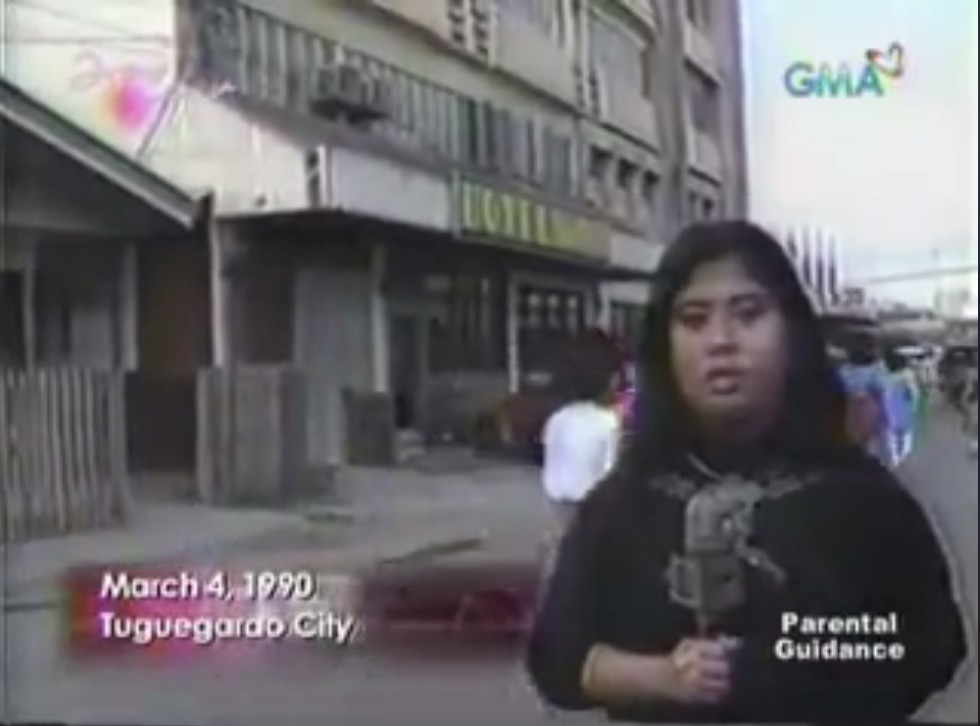By DONA MAGSINO, GMA News
January 22, 2018
Jessica Soho is a natural storyteller, which does not take long to become apparent whenever she speaks — whether on- or off-camera.
The longtime GMA Network broadcast journalist spoke to over 150 journalism students and media professionals on Monday in a lecture at the Skills Enhancement Seminar organized by the University of the Philippines College of Mass Communication.
All eyes and ears were hooked to stories, ranging from experiences in covering the President, to online memes, to how she loves going to the market.
“The market is the best place to be if you want to feel the vibe and pulse of a place and its people. The best stories are there too. About politics, the economy, culture, food and the environment if you bother to talk and listen to the sellers, the farmers and fishermen and the middlemen,” she said.
Two of the greatest influences in her life as a journalist were her grandmothers from La Union.
“The first lessons in journalism, I learned from them. My two lolas,” she said as she reminisced about summer weekends and school days she got to spend with them when she was still a little girl.
Her grandmother from the mother's side, Apo Itang, had a soft spot for good stories and was the one who taught her the value of good storytelling.
“She always made sure she had a steady supply of coffee, the visitors would chat with her all morning until it was time to prepare for lunch, and only then will they tell her the real purpose of their visit — para mangutang ng pera o ng bigas na maisasaing,” she said.
“Kukwentuhan mo lang siya nang kukwentuhan, madali siyang mautangan,” she added, sending the audience into laughter.
Her Lola Concepcion, a meat vendor, also contributed a lot to her formative years.
“From her, I learned the value of hard work and honesty... she also taught a thing or two about buying only the best and how not to fall easily for sales talk and dishonest weighing scales,” said the veteran broadcaster. “I supposed that early on, she was already teaching me investigative journalism.”
Her knack for storytelling is most apparent as the host of “Kapuso Mo, Jessica Soho,” the most-watched television program in the country. Beyond this, hearing Jessica Soho speak about her personal life was a welcome glimpse into the person behind the journalist who leads serious discussions about national issues every night.


Jessica Soho made a name for herself for her fearless coverage during the 1989 coup attempt on the Aquino administration by rebel soldiers.

In Tuguegarao in 1990, Jessica Soho was on the scene during a standoff led by Cagayan Gov. Rodolfo Aguinaldo at the Delfino Hotel, which led to the death of Brig. Gen. Oscar Florendo and 13 others.
As a field reporter in the military and defense beat, Jessica Soho has braved numerous coverage assignments: a landmine once exploded a few meters from her coverage team in Afghanistan, and the plane carrying them to the Spratlys almost ended up plunging into the waters for technical problems. Her status as one of the pillars of contemporary journalism in the country is undeniable.
One might ask then, how then would Jessica Soho describe a good journalist?
Someone who knows how to look for news stories, she said.
“Hindi puwedeng naghihintay lang ng manna from heaven or the news desk... A good reporter is not only one who gets it right when covering an assigned event or story, but someone who gets her or his story even without an assignment from the desk,” she said.
In order to be an excellent storyteller, she emphasized the importance of being a wide reader and a hardworking researcher.
She also talked about quality control, noting how airtime is a scarce commodity for media practitioners in broadcast communications, underscoring the need to produce substantive content for their audience.
Having a keen eye for details is also key.
“The best content producers are the worst control freaks. I do not say that with pride... we sweat the small stuff, we micromanage. If it's your story, you are accountable," she said. "The smallest details could spell the difference.”
She believes in giving the benefit of the doubt when interviewing personalities in pursuit of fairness.
“As much as possible I try not to be judgmental... You give them the chance to give their side," she said.
As a journalist, Jessica Soho has seen how the conversation has changed about journalism, specially in the age of social media.
KMJS has been the subject of memes because of commonly-used terms, particularly "diumano," during segments.
She joked: “Sa totoo lang pikon din ako.”
One time, she was walking along UP Sunken Garden when someone across the field randomly shouted the magic word.
She acknowledges how the term has become part of online culture, but noted too the importance of the word in writing news.
“‘Yung diumano kasi is ‘allegedly,’ it’s a term that’s supposed to be taken seriously para hindi tayo ma-demanda, ‘yung mga journalist diyan. It’s a very good word, ‘wag natin i-abuse ang diumano,” she said.
Soho reminds her team to limit the use of the word and to use other alternatives just to ensure that they strike a balance.
7 PIECES OF ADVICE FROM JESSICA SOHO
“One thing I have always been consistent on whenever students and our reporters and staff come to me for advice: read. You have to know stuff if you want to write or produce content.”
“With information becoming mobile, as we bring or take it with us anywhere where there’s wifi, we should also be information gatekeepers, and whenever possible, fact checkers. Be very mindful of fake news and please help prevent those from spreading.”
“When I became a producer for longer formats such as documentaries, special reports, investigative stories and news magazines… demographics became important. Are they watching us and who? Then and now, we have to learn how to balance the audience’s need to know versus want to know.”
“Pitch your own story. Do your own research. Come to the story conference prepared, with ‘baon.’ Hindi puwedeng naghihintay lang ng manna from heaven or from the news desk. This is how you get your scoops and exclusives and differentiate yourself from the pack.”
“Bottomline: You don’t bore your audience. Hook them and keep them.”
“If it’s your story, you are accountable; even if, it not only takes a village but practically the entire network for your story or your episode to air. You have to look after every detail, even the smallest ones.”
“You have to rely on a lot of people for help, strangers even. The people who share their stories, who let you into their lives and into their homes. The people who help with logistics so you can cover and air your stories; the people you entrust your lives with like your local guides and drivers. Be nice to them.”
Despite her achievements, she has always kept her feet on the ground.
“Journalism is a far bigger cause than anyone of us,” she said, quoting the investigative journalist Malou Mangahas.
Those who share their stories, she said, should always be treasured by the journalists.
And she never forgets to acknowledge her cameramen, researchers, and other members of the production staff whenever she receives an accolade.
“What you see is really the blood, sweat, and tears of an entire team. So for those of you willing to join us, may I suggest that ngayon pa lang, you learn to be humble and stay that way,” she said.
She reminds those who dream of becoming journalists to keep their eyes wide open for the demands of such an important job.
“It is thankless, dangerous and cruel, and demands and consumes so much from each one of us. Maybe it was meant to be that way,” she said.
Share This Story